With the festive season just around the corner, it is once again time for gatherings with family and friends over a feast of delicacies and drinks as you catch up on each other’s lives in the past year. On such occasions, the tendency to overindulge in the rich festive food typically leads to overeating which causes symptoms such as bloatedness, lethargy and adding a few undesirable pounds to the weighing scale. In fact, research suggests that people tend to gain more weight during the festive season! [1] In this article, let’s explore what is overeating in TCM and how you can relieve symptoms from festive overeating with TCM remedies, recipes and acupressure points from Physician Leow.
Why is overeating bad and how to combat it?
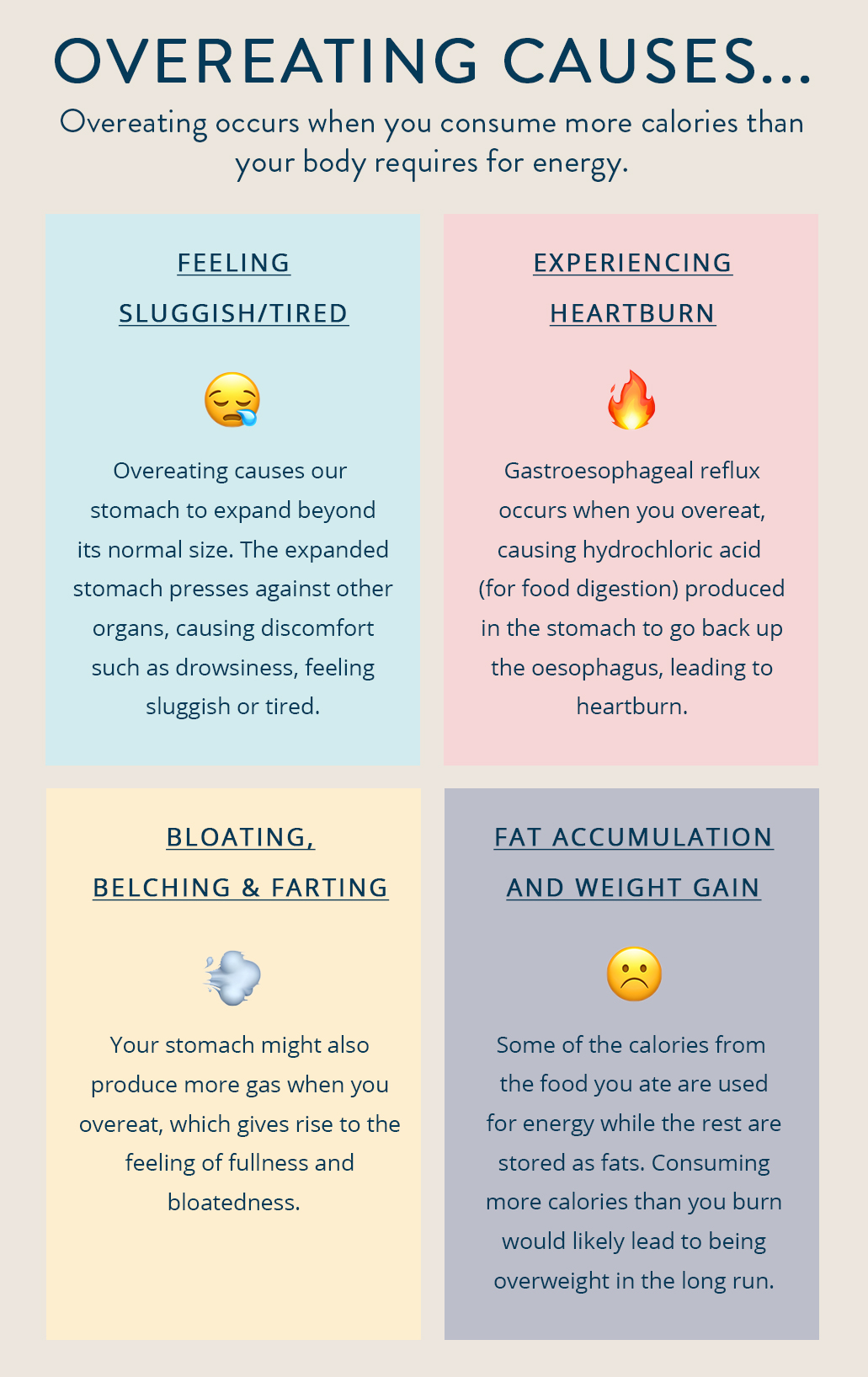
Reasons for overeating are unique to each individual, it is important to identify the reason for you to make positive changes to your diet. Here are some ways to prevent overeating and digestive issues.
1) Practice Mindful Eating
Many of us overeat simply because we are distracted. The most common distractor include the use of any device (such as mobile phones), as well as engaging in conversations while eating. When one is engaged in another activity, it is difficult to keep track of what we are eating.
The first step to curbing overeating is to practise mindful eating, placing focus on one’s sensual awareness and experience the food. This involves paying attention to food, taking time to chew and enjoying each bite.
2) Be Aware of Stress-eating
Stress might lead to overeating. Our hormone and cortisol level rises when we are under stress [2], which affects our appetite and increases our cravings for sugary or fatty foods. Stress is unavoidable, but knowing how to manage stress is crucial for our long-term health. Activities such as meditation and regular exercise are some of the good ways to help cope with stress.
3) Reduce Consumption of Processed Foods and Alcohol
Heavily processed foods such as bacon, sausage and ham are commonly used in many festive meals. Such foods are digested quickly in our body which leads to a spike in blood sugar [3]. The dip that follows after the spike in blood sugar will then cause one to become hungrier [4].
On the other hand, there is also a phenomenon known as the “apéritif effect” [5], where a greater amount of food is consumed as a result of alcohol consumption. This means that drinking alcohol can increase the chances of eating more than you intended and can make you more likely to give in to your salt/sugar cravings.
Thus, limiting your intake of processed foods and alcohol can help prevent
overeating.
4) Exercise Regularly
Being active not only helps to improve Qi and Blood circulation in the body, it also improves intestinal motility and our body metabolism – all of which helps with digestion. It is best to engage in at least 30 minutes of moderate physical activity at least twice a week.
5) Drink Sufficient Warm Water
Drinking plenty of warm water or ginger/cinnamon tea can help warm the Stomach and abdominal area, which helps ensure the proper functioning of our digestive system. Avoid excessive consumption of cold foods and drinks, as it can slow down intestinal motility and impair digestive function
Overeating from the TCM perspective
In TCM, the Spleen is the key organ of digestion as it transforms the nutritive essence that comes from the breakdown of food and liquids into Qi, Blood and body fluids.
Overeating commonly leads to food stagnation in the body, which can also impair the flow of Qi in the body thereby giving rise to stagnant Qi. The stagnation of food and Qi in the body impairs the functions of the digestive organs, resulting in symptoms such as bloating, stomach ache, nausea and vomiting, and bowel movement irregularities.
TCM home remedies to combat overeating symptoms
Bloating, wind and indigestion are common results of overeating. If you are experiencing discomfort from overeating, try these easy home remedies to relieve your symptoms.
1) Abdominal Massage
Massaging your stomach can help improve gut motility and relieve symptoms such as bloating, indigestion or constipation.
Instructions:
- Lie on your back in a comfortable position. Bend your knees and put your feet in a flat position.
- Place one hand on your belly button, and then place the other hand above it.
- Move your hand together in a circle in a clockwise direction around the belly button. Use light pressure as you go along.
Note: Individuals who are experiencing diarrhea should avoid abdominal massages.
2) DIY Acupressure Massage
Apart from abdominal massages, massaging certain acupoints can also help provide relief from bloating and indigestion. Most of these acupoints are believed to influence the Stomach, Intestines and other abdominal Organs to improve digestive health.
| Zu San Li 足三里 (ST36) | |
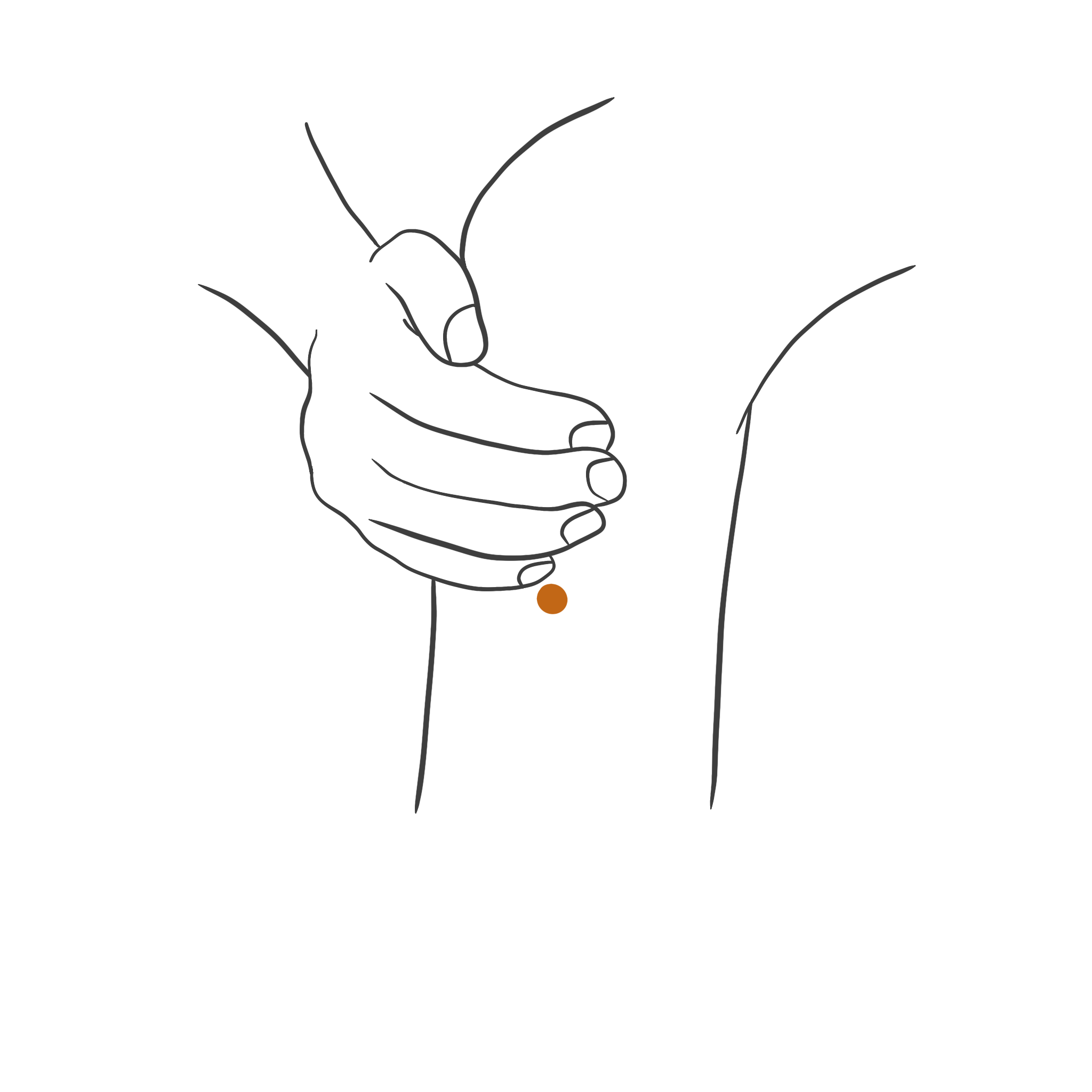 |
Location: Roughly 3 inches (or 4 fingers) below the kneecap, about 1 inch towards the outer edge. How to massage:
How it works: Also known as the “longevity point”, massaging Zu San Li has a rejuvenating and healing effect. It directly works on the Stomach by balancing the Stomach Qi and energy. |
| Zhong Wan 中脘 (CV12) | |
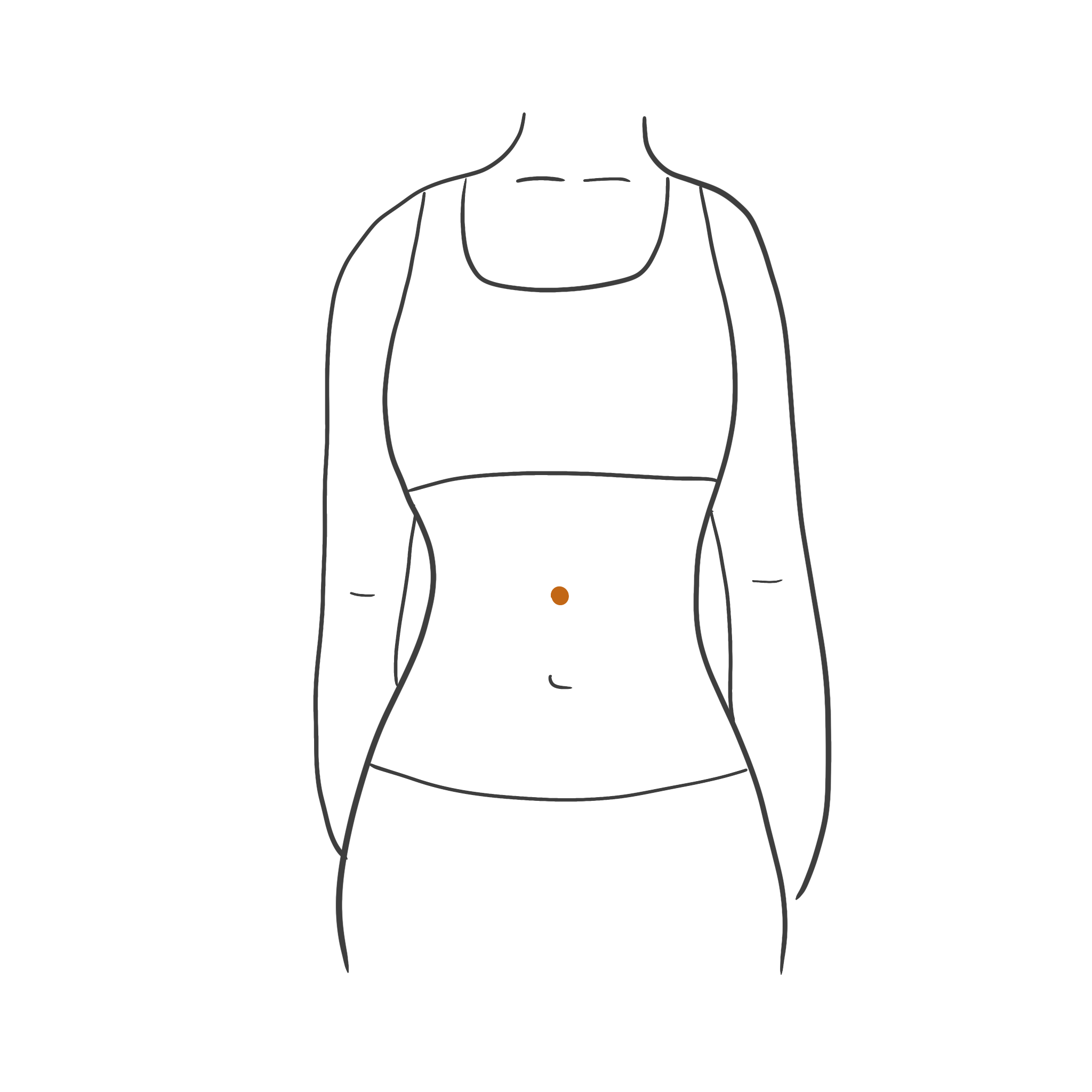 |
Location: Roughly 4 inches above the belly button. How to massage:
How it works: Zhong Wan has functions such as tonifying the middle jiao, strengthening the stomach and fortifying the Spleen, as well as regulating Qi. It is thus commonly used for many digestive problems such as stomach ache, abdominal distention, indigestion etc. |
| Qi Hai 气海 (CV6) | |
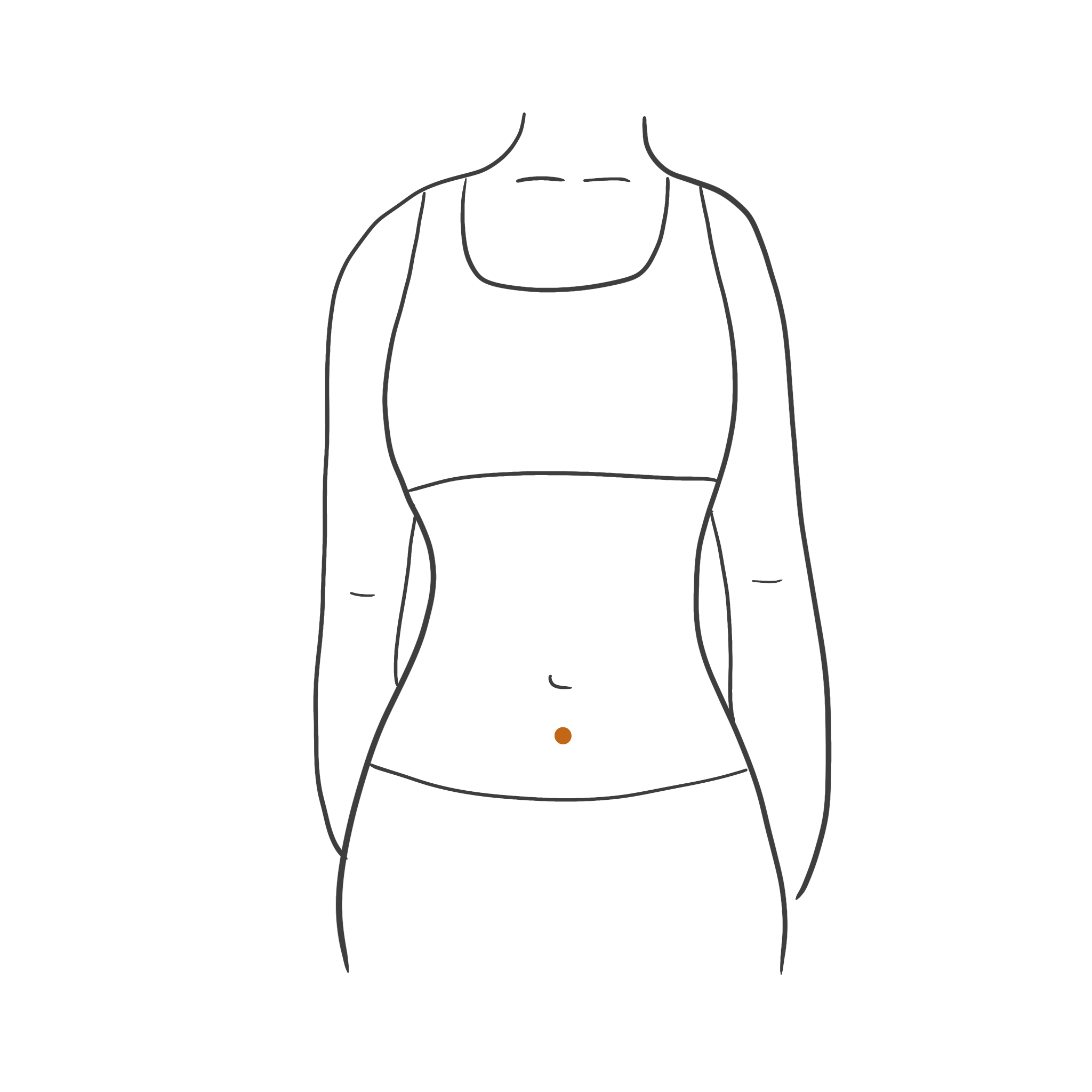 |
Location: Roughly 1.5 inches below the belly button. How to massage:
How it works: Qi Hai has the main function of tonifying and regulating the Qi in the body, which is why it is used to relieve various digestive issues that involve stagnant Qi, such as abdominal pain and distention. |
3) TCM Recipes
i) For people who overindulged in oily food: Hawthorn & Rose Tea
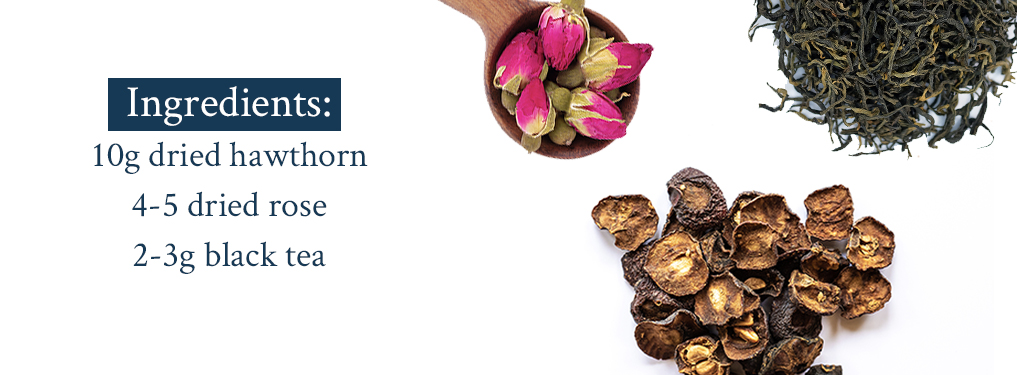
Steps:
- Cut up all the ingredients and put them in a teabag filter.
- Rinse the teabag with hot water.
- Steep the teabag in hot water for 20 minutes. You can enjoy the tea after it has slightly cooled down.
How it works: Hawthorn’s main function is to aid in the digestion of fatty foods and meats. Hawthorn also has a sour and sweet taste. Based on the “Five-Phases” theory, a sour taste can help with digestion while sweet taste can help tonify Qi in the body as well as slow down acute reactions in the body and detoxify the body. In addition, the sour and sweet tastes are linked to the Spleen, Stomach and Liver meridians, giving hawthorn functions that target the respective organs. In TCM, the Spleen and Stomach have digestive functions, while the Liver is in charge of regulating Qi in the body. As such, hawthorn can help target these Organs to more effectively boost their functions and improve digestion.
Rose tea is known to increase liver bile production, which also helps in the digestion of food. Black tea can also help in digestive health as research has shown that it can help promote the growth of healthy bacteria as well as preventing harmful bacteria from proliferating in our gut [6].
Note: It is not recommended to drink more than 3 cups a day. Those with gastric problems, or are currently taking blood-pressure-lowering or heart medications should seek medical advice before consumption.
ii) For people with bloating: Malt tea
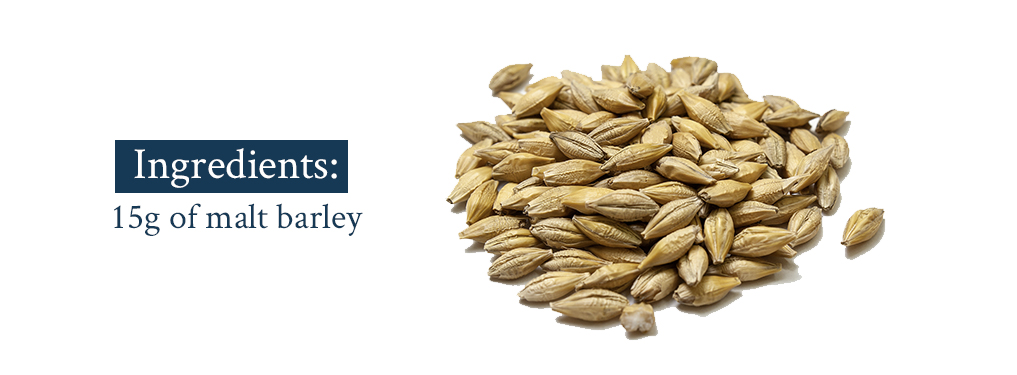
Steps:
- Toast the malt barley in a large pan over medium heat, or in an oven for 20 minutes at 170°C, till it is a rich medium brown colour.
- Add the toasted malt barley into a pot and bring to a boil. Then simmer for 20 minutes. Serve hot.
Alternatively, steep 1 to 2 malt tea bags in hot water, and consume when warm. Avoid adding sugar or sweeteners to the tea.
How it works: Bloating that comes from overeating is due to undigested food and stagnant Qi in the Stomach. Malt can help by breaking down carbohydrates, as well as regulating the Qi in the Stomach.
iii) For people with indigestion: Burdock root tea
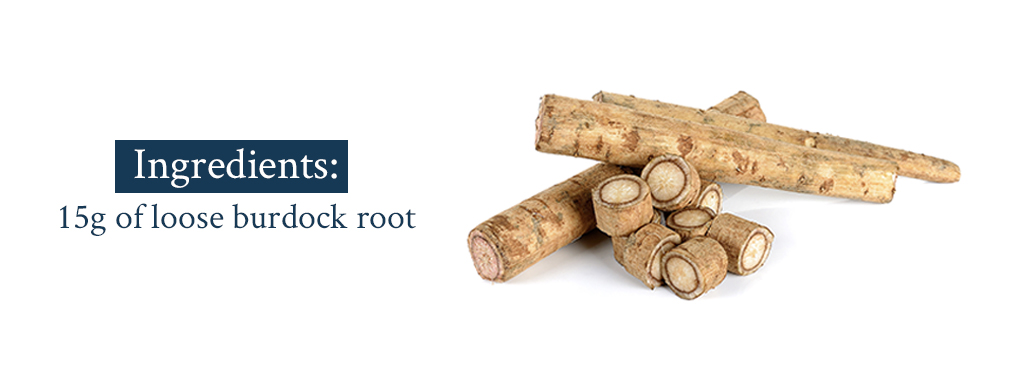
Steps:
- Add the loose burdock root into a cup.
- Simmer the herb in 200ml of boiling water for 15 minutes. After which, the tea is ready for consumption. It is advised to consume 15 to 30 minutes before a meal.
How it works: Burdock root is rich in antioxidants, which aids in digestion. It also helps improve digestion by increasing intestinal secretions and stomach acid.
Note: Do not consume if you have a tendency to have excess stomach acid, stomach ulcers or irritable bowels. Avoid burdock root if you have diarrhea or heartburn. This tea is also not suitable for pregnant women.
How do we alleviate discomfort from overeating at Oriental Remedies Group?
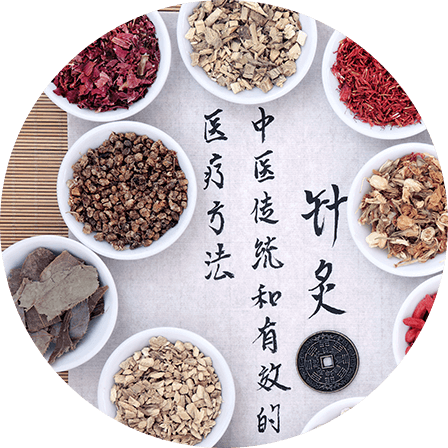
Herbal medication can be prescribed in a balanced formula to target each individual’s constitution to help with their digestive issues. Common TCM herbs that are used to relieve digestive problems include Barley Sprout (Maiya 麦芽), Chicken Gizzard Lining (Jineijin 鸡内金), Hawthorn Berry (Shanzha 山楂), Rice Sprout (Guya 谷芽), Tangerine Peel (Chenpi 陈皮) and Unripe Bitter Orange (Zhishi 枳实). These herbs mostly work by aiding in the digestion of food as well as improving intestinal motility to remove stagnant Qi and food.
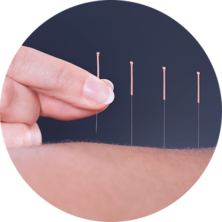
Acupuncture can help relieve digestive problems through a variety of ways:
- One of the effects of an overactive sympathetic nervous system is decreased digestive function. Acupuncture helps by balancing the gut brain axis as well as the nervous system. This reduces stress, which in turn improves our digestive function.
- Acupuncture can help reduce inflammation and pain, thereby regulating stomach acid and promoting intestinal motility.
Acupoints such as Zu San Li 足三里(ST36), Zhong Wan 中脘(CV12), Qi Hai 气海 (CV6), He Gu 合谷(LI4), Wai Guan 外关(TH5), Nei Guan 内关(PC6) and Tai Chong 太 冲 (LV3) are commonly used in the treatment of digestive issues
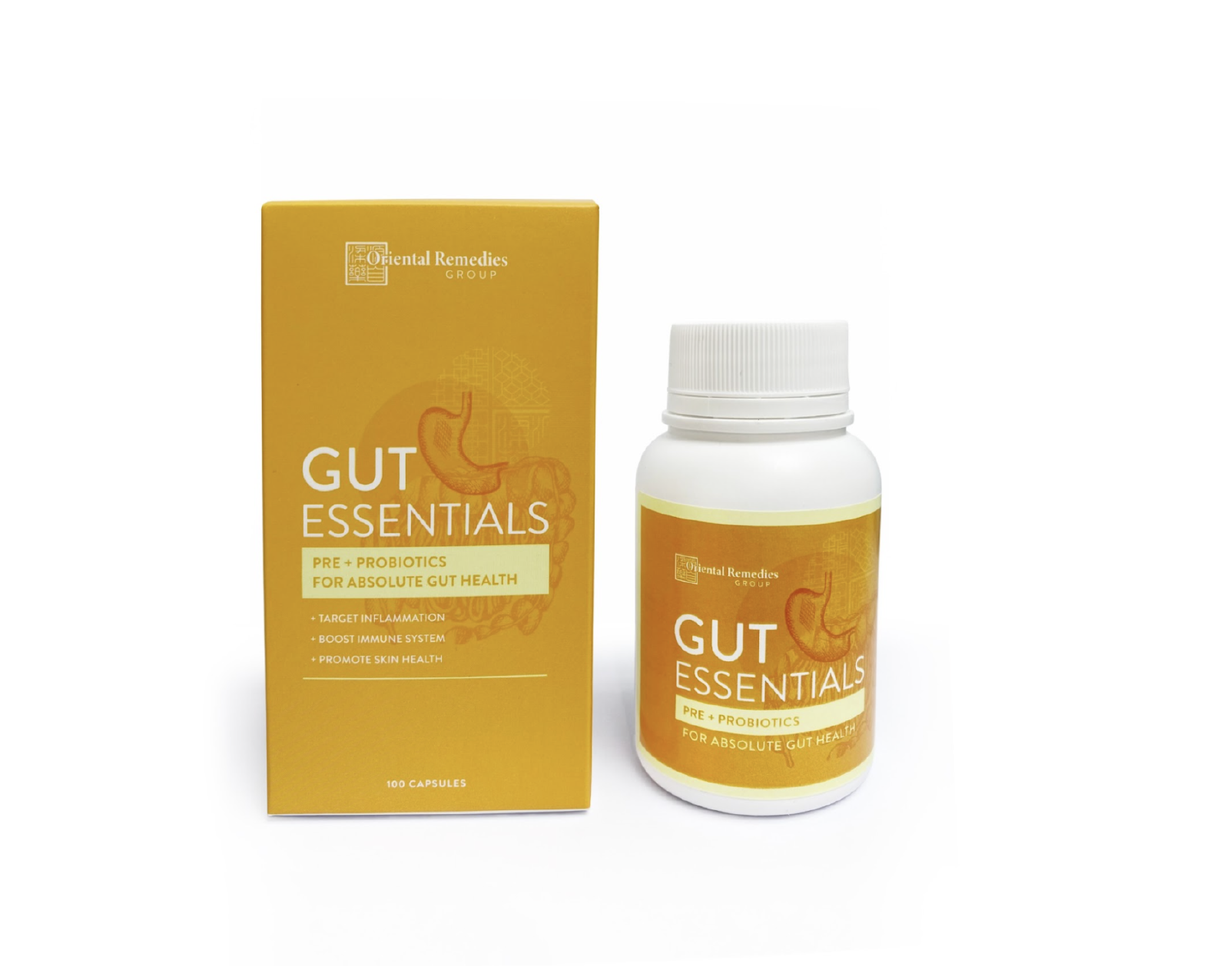
Our gut contains trillions of good bacteria that prevent the bad bacteria from taking over our gut, these good bacteria keeps us healthy in many ways. Good gut bacteria help in the digestion of food and prevents harmful bacteria from entering our body through the gut barrier. An accumulation of bad bacteria in the gut may lead to digestive symptoms such as bloating, abdominal pain, and diarrhea.
Our Gut Essentials supplement contains 8 strains of acid-resistant probiotics (good gut bacteria!) and 4 billion Colony-Forming Units (CFUs). As the probiotics are acid-resistant, it ensures that they are not destroyed by the gastric acid in the stomach, allowing them to reach the intestines where they are required the most. This supplement helps maintain our gut microbiome, protecting our digestive tract from bad bacteria, thereby relieving any digestive symptoms.
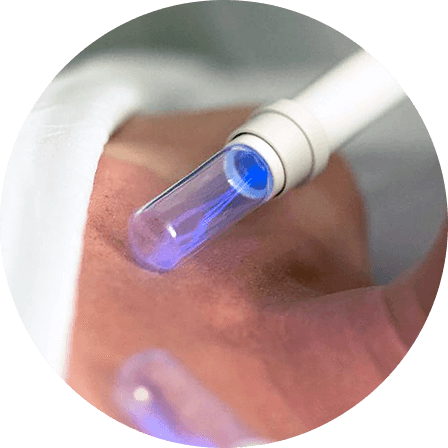
Electro-Lymphatic Therapy (ELT)
Our lymphatic system is actually closely linked to digestion as many of our lymph nodes are found in the stomach area. There are also lacteals, which are specialised lymph capillaries in the villi of the small intestine. These lacteals serve to absorb the fat-soluble end products of digestion, which include fatty acids as well as vitamins A, D, E and K. They are then transported to the circulatory system via the thoracic duct. A malfunction in this part of our lymphatic system can lead to serious malnutrition, and it can also impact conditions such as excessive obesity caused by abnormal carbohydrate and fat metabolism.
Electro-Lymphatic Therapy, or ELT for short, is one of the most popular treatments at ORG. It serves the main function of decongesting the lymphatic system, bringing patients an array of benefits to their body, including proper digestive functions.
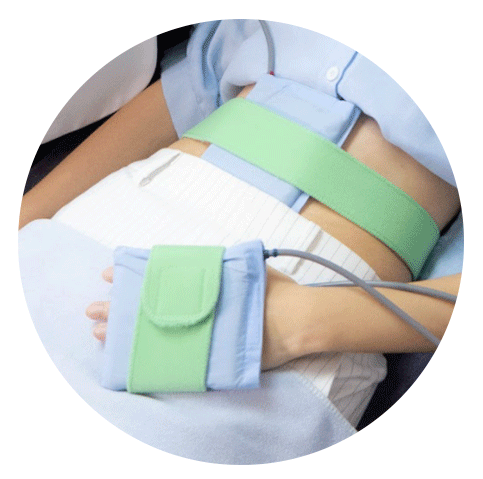
Negative ions are tiny molecules that work to improve cellular metabolism. Cell Pro Therapy (CPT) uses a Japan-made wellness device to transmit large numbers of negative ions into the body via the skin. By improving the cellular metabolism of cells in the digestive system, it can reduce tension in the stomach and intestines, as well as promote the production of digestive enzymes, which in turn helps relieve symptoms such as indigestion and bloating.
If you or a loved one is suffering from gut health and digestion issues, we would like to help. Please contact us at +65 8087 0486 for a personalized consultation.
—–
This article is written by Physician Kelly Leow.
Physician Leow is a TCM physician at Oriental Remedies Group, a patient-centred healthcare provider offering effective treatments grounded in TCM and enhanced with medical technology.
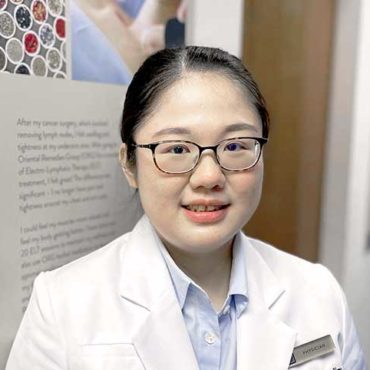
Note: all words in Italics mentioned henceforth refer to the TCM organ system and not the anatomical organs/terms referenced in western medicine.
Disclaimer:
The information on this page is for information and educational purposes only. Such medical information may relate to disease, injury, drugs and other treatments, medical devices and/or health products. Medical information does not amount to advice, and if advice is needed an appropriate professional help should be sought. The disclaimer asserts that no warranties or representations are given in respect of the medical information, and that the website operator should not be held liable if a user suffers any injury or loss after relying upon the medical information.
All wellness assessments and technology-enhanced therapies using wellness device(s) are intended for use only for general well-being purposes or to encourage or maintain a healthy lifestyle, and it is not intended to be used for any medical purposes (such as detection, diagnosis, monitoring, management or treatment of any medical condition or disease). Any health-related information provided by these devices should not be treated as a medical advice. Please consult a physician for any medical advice required.
References:
[1] Rolando G. Díaz-Zavala, María F. Castro-Cantú, Mauro E. Valencia, Gerardo Álvarez-Hernández, Michelle M. Haby, Julián Esparza-Romero, “Effect of the Holiday Season on Weight Gain: A Narrative Review”, Journal of Obesity, vol. 2017, Article ID 2085136, 13 pages, 2017. https://doi.org/10.1155/2017/2085136
[2]Thau L, Gandhi J, Sharma S. Physiology, Cortisol. [Updated 2021 Sep 6]. In: StatPearls [Internet]. Treasure Island (FL): StatPearls Publishing; 2021 Jan-. Available from: https://www.ncbi.nlm.nih.gov/books/NBK538239/.
[3]https://www.medicalnewstoday.com/articles/317122
[4] Wyatt, P., Berry, S.E., Finlayson, G. et al. Postprandial glycaemic dips predict appetite and energy intake in healthy individuals. Nat Metab 3, 523–529 (2021).
https://doi.org/10.1038/s42255-021-00383-x
[5]Eiler WJ 2nd, Džemidžić M, Case KR, et al. The apéritif effect: Alcohol’s effects on the brain’s response to food aromas in women. Obesity (Silver Spring). 2015;23(7):1386-1393. doi:10.1002/oby.21109.
[6] D. Hervert-Hernández & I. Goñi (2011) Dietary Polyphenols and Human Gut Microbiota: a Review, Food Reviews International, 27:2, 154-169, DOI: 10.1080/87559129.2010.535233

